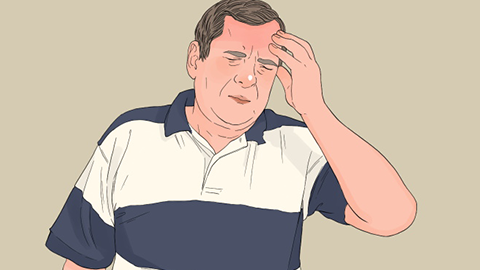What are the symptoms of dengue fever?
Generally, the main symptoms of dengue fever include sudden high fever, body muscle pain, rash, headache, nausea, and vomiting. If discomfort symptoms appear, it is recommended to seek timely diagnosis and treatment at a regular hospital. Detailed analysis is as follows:
1. Sudden High Fever
After the dengue virus enters the human body, it stimulates the immune system, triggering an inflammatory response that disrupts the function of the body's temperature regulation center. A sudden high fever often develops within 1-2 days after infection, with body temperature frequently reaching 39-40°C. The fever typically lasts for 3-7 days and does not respond明显ly to ordinary antipyretic medications.

2. General Body Muscle Pain
During the replication process of the virus in the body, muscle tissues are damaged and inflammatory factors are released, stimulating muscle nerve endings, causing generalized muscle pain. The pain is particularly noticeable in the lower back and leg muscles, and patients often feel limited mobility in their limbs.
3. Rash
About 3-6 days after infection, the virus and inflammatory factors affect the skin's blood vessels, causing rashes. These rashes usually first appear on the palms, soles of the feet, or trunk, and then spread to the limbs. The rash is mostly in the form of maculopapular or measles-like eruptions. Some patients may experience mild itching along with the rash, which generally subsides after 3-4 days.
4. Headache
The virus stimulates brain blood vessels, causing vasodilation or spasm, while inflammatory factors act on the nerves in the head, resulting in severe headaches. The pain is mostly concentrated in the forehead, behind the eyes, or at the temples. Patients often describe the pain as a feeling of pressure or throbbing, and the pain intensifies when coughing or bending over.
5. Nausea and Vomiting
The virus and inflammatory factors affect the gastrointestinal mucosa, leading to gastrointestinal motility disorders and reduced digestive function, causing nausea and vomiting. The vomit is mostly gastric contents. Some patients also experience loss of appetite, and in severe cases, diarrhea may occur, leading to dehydration.
In addition, some patients may also experience eye socket pain and swollen lymph nodes. If one notices the above symptoms and has a recent history of mosquito bites or has visited dengue fever endemic areas, immediate medical attention is necessary. It is important to take measures to prevent mosquitoes in daily life to avoid further mosquito bites. During the illness, patients should rest adequately, drink plenty of water, and maintain a light and easily digestible diet to assist in recovery.








